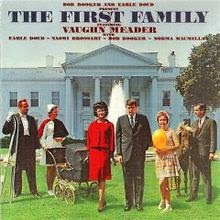Friday
22nd of November 1963: the day President John F Kennedy was shot
dead in Dallas Texas. The next morning, 5,000 miles away in the Welsh seaside
town of Aberystwyth, a seven year old boy and his younger brother, in matching
blue dressing gowns, got up early while their parents and baby sister slept on.
They listened to Tubby the Tuba on the large gramophone that filled the corner
of the dinning room. Then, sitting on the cold carpet, they turned their
attention to their Corgi and Matchbox cars, and pushed them along the fresh
snail trails that had appeared over night.
After
Danny Kay had finished telling the musical adventures of Tubby, the BBC Light
programme crackled out of the grey Roberts transistor radio. Like every other
Saturday, the boys listened to Uncle Mac’s Children’s Favourites. Squeezed
between the inevitable requests for Beatles, Gerry and the Pacemakers and Puff
the Magic Dragon, the news bulletin alerted the brothers to the death of John
Kennedy.
I
was that boy; I could not accept that Kennedy had died. My younger brother
asked who Kennedy was. I replied, all knowing and convinced that the President
of the United States could not be despatched, that it must be the President’s
brother. I knew that, although brothers were fair game, President Kennedy was
one of the good guys and was as indestructible as my black and white television
heroes, such as The Lone Ranger or Noggin the Nog.
Why
was the death of a president from a foreign country so important to a
seven-year-old boy in an era long before 24 hour news? In fact my brother and I
had not been exposed to much TV at all; we had only had a set for a few months,
to coincide with my father’s obsession to watch the cricket season of 1963 and his
long vacation from the University, where, as a violinist, he lectured in the
music department and led the string quartet. Then, just as the new autumn
schedule for kids started and TV began to look interesting, he had sent it back
to the hire shop and returned to his lecturing duties.
To
compensate for not having a telly, my father bought LPs of children’s stories
and songs for my brother and me and comedy for himself. One of his LPs was
called ‘The First Family’, and was a series of comedy sketches sending up
family life in the White House. My father played this over and over again,
until the story of Kennedy’s endless motorcade refusing to fill up at the gas
station because they didn’t issue green stamps had become as important to my
early cultural life as reading Dan Dare. After the shooting, the LP was hidden
away by my father, never to be played again.
Most
people in their late 50s and above can probably remember where they were when
they first heard about JFK’s untimely death. There are many websites devoted to
these memories, and it’s fascinating to see many of the contributors were young
children at the time of the assassination.
This
phenomenon is not limited to the death of one American President. My parent’s
generation knew where they were and what they were doing on the out break of the
second world war and since Kennedy, events such as the deaths of John Lennon,
Princess Diana and the first election victory for Tony Blair could also be said
to have left their mark on most people who were around at the time.
There
is something about traumatic events in childhood that stick in the mind. How
much of my recall of the Dallas shooting is genuine memory and how much is
guesswork is hard to analyse. Much of my story is pieced together from my
Saturday morning routines of the early sixties, I don’t know what I had for
breakfast that day or when I realized that it had been the President who had
died that day, and that his brother was to live on another few years before
suffering a similar fate.
Fifty
years on, my late father’s LPs lie in a dark cupboard, waiting for the time to
come when they are sorted out for distribution to the family or a trip to
Oxfam. Amongst them must be his copy of
“The First Family”, maybe enough time has passed to dust down the vinyl,
dig-out the old record player and give it its first play for 50 years.



1 comment:
A very perceptive description of the impact on a seven year old. I was just eighteen and in the kitchen early evening when I heard the news.
Would love to hear that LP.s
Post a Comment